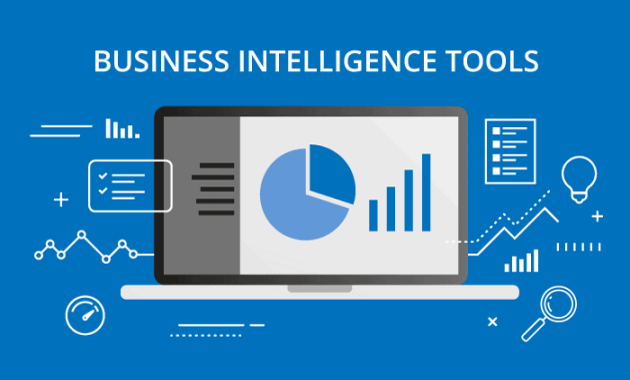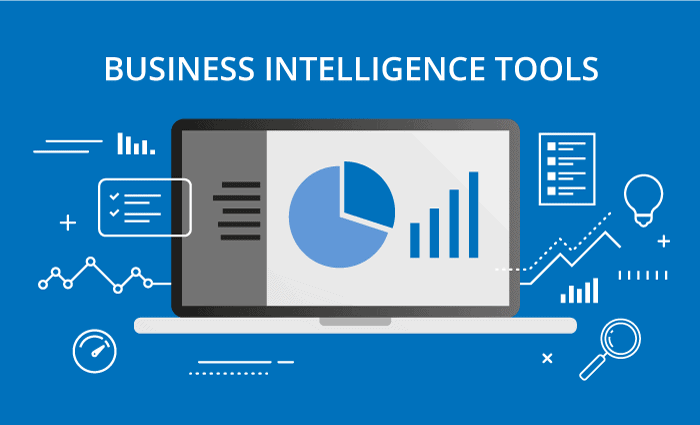
Unlocking Efficiency: How Business Intelligence Tools Empower Multi-Level Governance
In today’s complex business landscape, effective governance is paramount. Organizations operating at multiple levels face unique challenges. They must navigate intricate data flows and diverse stakeholder needs. Business intelligence (BI) tools offer a powerful solution. They provide the insights needed for informed decision-making. This article explores how these tools are transforming multi-level governance. We will examine their capabilities, benefits, and practical applications.
The Core of Multi-Level Governance
Multi-level governance refers to decision-making processes. They involve various levels within an organization. This includes departments, subsidiaries, and external partners. Success hinges on seamless information sharing and transparency. Traditional governance models often struggle with these requirements. Data silos, manual reporting, and lack of real-time insights hinder progress.
Business intelligence tools bridge this gap. They consolidate data from disparate sources. They transform it into actionable intelligence. This enables stakeholders at all levels to make better decisions. These tools offer a 360-degree view of the organization. This allows for better understanding and proactive problem-solving.
Key Capabilities of Business Intelligence Tools
Business intelligence tools offer a range of features. These features are essential for effective multi-level governance. They include:
- Data Integration: Connect to various data sources. These include databases, spreadsheets, and cloud services.
- Data Visualization: Create interactive dashboards and reports. These present data in an easily understandable format.
- Data Analysis: Perform advanced analytics. This includes statistical modeling and predictive analysis.
- Reporting and Dashboards: Generate customized reports. They provide real-time insights into key performance indicators (KPIs).
- Collaboration: Enable users to share data and insights. This promotes better communication and decision-making.
- Alerts and Notifications: Set up automated alerts. They notify users of critical changes or anomalies.
These capabilities empower organizations to move beyond reactive governance. They move towards proactive and data-driven strategies. This leads to improved efficiency, compliance, and overall performance. The right tools can make a significant difference.
Benefits for Multi-Level Governance
Implementing business intelligence tools offers several advantages. These benefits directly impact multi-level governance. They lead to better outcomes across the organization. Consider these key advantages:
- Improved Decision-Making: Data-driven insights support more informed decisions. This reduces risks and improves outcomes.
- Enhanced Transparency: Clear and accessible data fosters trust. It promotes accountability across all levels.
- Increased Efficiency: Automated reporting and analysis save time. This allows staff to focus on strategic initiatives.
- Better Compliance: Real-time monitoring helps ensure adherence to regulations. This reduces the risk of penalties.
- Cost Reduction: Optimizing processes and resource allocation reduces expenses. This improves profitability.
- Strategic Alignment: Data insights align objectives at different levels. This fosters collaboration and shared goals.
These benefits demonstrate the transformative power of BI tools. They help organizations achieve their governance objectives. They also enhance overall operational effectiveness.
Real-World Applications of Business Intelligence Tools
Business intelligence tools are versatile. They can be applied across various industries and departments. Here are some examples of their practical applications:
- Financial Reporting: Track revenue, expenses, and profitability. Identify trends and anomalies.
- Supply Chain Management: Monitor inventory levels and optimize logistics. Reduce costs and improve delivery times.
- Human Resources: Analyze employee performance and identify talent gaps. Improve workforce planning.
- Sales and Marketing: Track sales performance and customer behavior. Enhance marketing campaigns.
- Healthcare: Monitor patient outcomes and optimize resource allocation. Improve patient care.
- Government: Track public spending and monitor service delivery. Improve transparency.
These examples highlight the broad applicability of BI tools. They can address unique challenges in different sectors. They can also improve operational efficiency.
Choosing the Right Business Intelligence Tools
Selecting the right BI tools is crucial for success. Consider these factors when making your decision:
- Ease of Use: Choose tools with intuitive interfaces. This makes it easier for users to access data.
- Scalability: Ensure the tools can handle growing data volumes. This supports future growth.
- Integration Capabilities: Select tools that integrate with existing systems. This allows for seamless data flow.
- Security: Prioritize tools with robust security features. This protects sensitive data.
- Cost: Evaluate the total cost of ownership. This includes software, implementation, and training.
- Vendor Reputation: Research the vendor’s experience and customer support. This ensures reliable service.
Careful evaluation ensures that the selected tools meet your specific needs. It also supports long-term success.
Implementing Business Intelligence Tools for Multi-Level Governance
Successful implementation requires a strategic approach. Follow these steps for effective deployment:
- Define Objectives: Identify the goals you want to achieve. This guides the selection and implementation process.
- Assess Data Sources: Identify all relevant data sources. This ensures comprehensive data coverage.
- Choose the Right Tools: Select tools that align with your requirements. This ensures effective data analysis.
- Develop a Data Strategy: Create a plan for data governance and data quality. This ensures accurate and reliable data.
- Train Users: Provide training to ensure effective tool usage. This maximizes the benefits of the tools.
- Monitor and Evaluate: Track the tools’ performance and make adjustments as needed. This ensures ongoing optimization.
A well-planned implementation maximizes the benefits of BI tools. It also supports long-term success.
Future Trends in Business Intelligence
The field of BI is constantly evolving. Staying informed about the latest trends is essential. Here are some key trends to watch:
- Artificial Intelligence (AI) and Machine Learning (ML): AI and ML are transforming BI. They automate data analysis and provide predictive insights.
- Cloud-Based BI: Cloud-based solutions offer flexibility and scalability. They reduce costs and improve accessibility.
- Data Democratization: Empowering users to access and analyze data. This fosters data-driven decision-making.
- Self-Service BI: Providing users with tools to create their own reports and dashboards. This increases agility.
- Mobile BI: Accessing data and insights on mobile devices. This supports decision-making on the go.
- Data Governance and Privacy: Focus on data security and compliance. This builds trust and protects sensitive information.
Staying ahead of these trends enables organizations to leverage the full potential of BI. It also ensures they remain competitive.
Conclusion: Empowering Governance with Business Intelligence
Business intelligence tools are essential for effective multi-level governance. They provide the insights needed for informed decision-making. They also enhance transparency and improve operational efficiency. Organizations that embrace these tools are better positioned to succeed. They achieve their governance objectives and drive long-term growth. By implementing the right tools and strategies, businesses can unlock their full potential. They can also optimize their processes. This will lead to a more efficient and effective future. The future of business intelligence in multi-level governance is promising. It is a key component of modern business success.
Business intelligence tools are not just about technology. They are about empowering people. They provide them with the data they need. This empowers them to make better decisions. This ultimately drives better outcomes. This makes business intelligence tools indispensable in today’s world. They help organizations thrive in a competitive landscape.
[See also: The Role of Data Analytics in Corporate Strategy]
[See also: How to Build a Data-Driven Culture]

